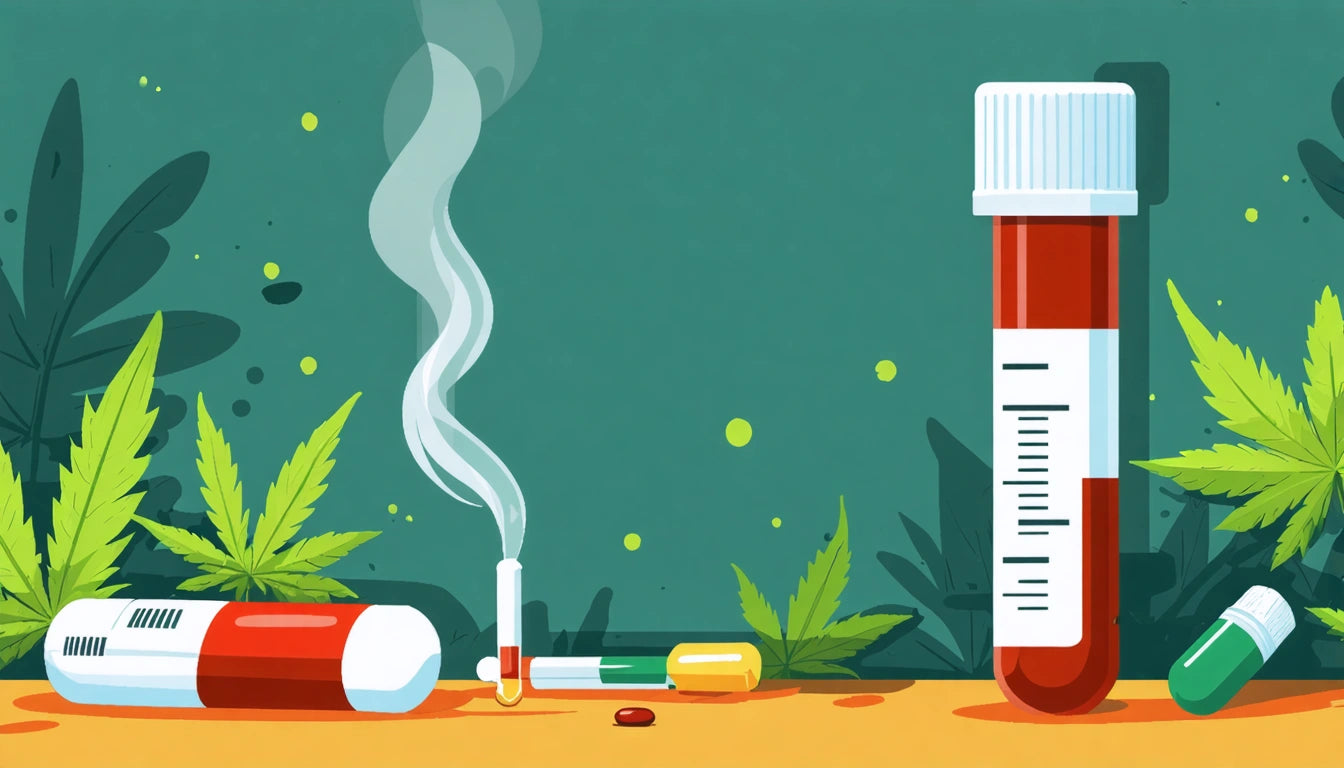Table of Contents
- Cannabis Detection Basics: Understanding THC Metabolites
- Detection Windows: How Long Cannabis Remains in Urine
- Factors Affecting How Long Cannabis Stays in Urine
- Urine Test Types and Sensitivity Levels
- Comparing Detection Methods: Urine vs. Other Testing Methods
- Making Informed Decisions About Cannabis Use and Testing
How Long Does Cannabis Stay in Urine?
Understanding how long cannabis remains detectable in urine is crucial for consumers who may face drug testing for employment, legal, or medical reasons. Cannabis detection in urine depends on various factors including frequency of use, metabolism, and the testing method employed. This comprehensive guide explains detection windows and factors that influence how long marijuana stays in your urine.
Cannabis Detection Basics: Understanding THC Metabolites
When cannabis is consumed, THC (tetrahydrocannabinol), the primary psychoactive compound, is metabolized by the liver into various metabolites. The main metabolite, THC-COOH or carboxy-THC, is what most urine tests detect. Unlike the active THC that causes impairment, THC-COOH is non-psychoactive but remains in the body much longer.
Urine tests don't measure impairment but rather detect the presence of these metabolites, which can remain long after the effects have worn off. This is why cannabis can stay in your system for days or weeks after use, even though the high typically lasts only a few hours.
Detection Windows: How Long Cannabis Remains in Urine
The detection window for cannabis in urine varies significantly based on usage patterns:
- Single use (first-time or occasional user): 3-5 days
- Moderate use (2-4 times per week): 5-10 days
- Heavy use (daily use): 10-30 days
- Chronic heavy use (multiple times daily): 30+ days, potentially up to 90 days in extreme cases
These timeframes represent general guidelines. Individual results may vary based on personal factors. For those concerned about how long weed stays in your system for a urine test, understanding your usage pattern is the first step in estimating detection time.
Factors Affecting How Long Cannabis Stays in Urine
1. Frequency and Amount of Use
The most significant factor determining how long marijuana stays in your urine is how often and how much you consume. THC builds up in the body with repeated use, extending detection times for regular users.
2. Metabolism and Body Fat
Since THC metabolites are stored in fat cells, individuals with higher body fat percentages may retain these compounds longer. A faster metabolism generally leads to quicker elimination of THC metabolites.
3. Hydration and Physical Activity
While proper hydration supports overall health and may slightly dilute urine concentration, it won't significantly speed up THC elimination. Regular exercise can help by burning fat where THC is stored, but ironically might temporarily increase blood THC levels as fat cells release stored cannabinoids.
4. Potency of Cannabis Products
Higher-potency products containing more THC naturally lead to more metabolites and potentially longer detection times. When using equipment like quality cannabis grinders for consistent preparation, users can better control their dosage and potentially manage their intake more precisely.
Urine Test Types and Sensitivity Levels
Standard urine tests for cannabis typically use immunoassay screening with cutoff levels between 20-50 ng/mL. Tests with lower cutoff levels can detect cannabis use for longer periods. If an initial screening is positive, confirmation testing using more specific methods like gas chromatography/mass spectrometry (GC/MS) is often performed.
Understanding how long weed is detectable in urine tests depends partly on knowing which test is being used and its sensitivity threshold.
Comparing Detection Methods: Urine vs. Other Testing Methods
Cannabis detection times vary significantly across different testing methods:
- Urine: 3-30+ days (most common testing method)
- Blood: 1-2 days (up to 7 days for heavy users)
- Saliva: 24-72 hours
- Hair: Up to 90 days or longer
- Breath: 2-3 hours (newer technology, less common)
Urine testing remains the most common method due to its relatively long detection window, non-invasive collection, and lower cost compared to other methods. For those wondering how long it takes to clear marijuana from urine, the answer varies significantly based on all factors mentioned above.
Making Informed Decisions About Cannabis Use and Testing
Understanding how long marijuana is detectable in urine allows consumers to make informed decisions about their cannabis use. For those facing drug tests, knowing these timeframes is particularly important.
It's worth noting that detection windows differ substantially from impairment windows. THC's psychoactive effects typically last a few hours, while detection can persist for weeks. This disconnect creates challenges for both users and testing policies.
For medical cannabis patients or those in legal recreational markets, having conversations with healthcare providers about potential drug testing concerns is increasingly common. Some employers and organizations are updating policies to accommodate legal cannabis use, though many still maintain zero-tolerance approaches.
As cannabis legalization expands, more nuanced approaches to testing that better measure actual impairment rather than past use are being developed, potentially offering more fair assessments in the future.











Leave a comment
All comments are moderated before being published.
This site is protected by hCaptcha and the hCaptcha Privacy Policy and Terms of Service apply.